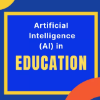The adoption of Artificial Intelligence in Education (AIED) holds the promise of revolutionizing educational practices by offering personalized learning experiences, automating administrative and pedagogical tasks, and reducing the cost of content creation. However, the lack of standardized practices in the development and deployment of AIED solutions has led to fragmented ecosystems, which presents challenges in interoperability, scalability, and ethical governance. This article aims to address the critical need to develop and implement industry standards in AIED, offering a comprehensive analysis of the current landscape, challenges, and strategic approaches to overcome these obstacles. We begin by examining the various applications of AIED in various educational settings and identify key areas lacking in standardization, including system interoperability, ontology mapping, data integration, evaluation, and ethical governance. Then, we propose a multi-tiered framework for establishing robust industry standards for AIED. In addition, we discuss methodologies for the iterative development and deployment of standards, incorporating feedback loops from real-world applications to refine and adapt standards over time. The paper also highlights the role of emerging technologies and pedagogical theories in shaping future standards for AIED. Finally, we outline a strategic roadmap for stakeholders to implement these standards, fostering a cohesive and ethical AIED ecosystem. By establishing comprehensive industry standards, such as those by IEEE Artificial Intelligence Standards Committee (AISC) and International Organization for Standardization (ISO), we can accelerate and scale AIED solutions to improve educational outcomes, ensuring that technological advances align with the principles of inclusivity, fairness, and educational excellence.
翻译:暂无翻译





